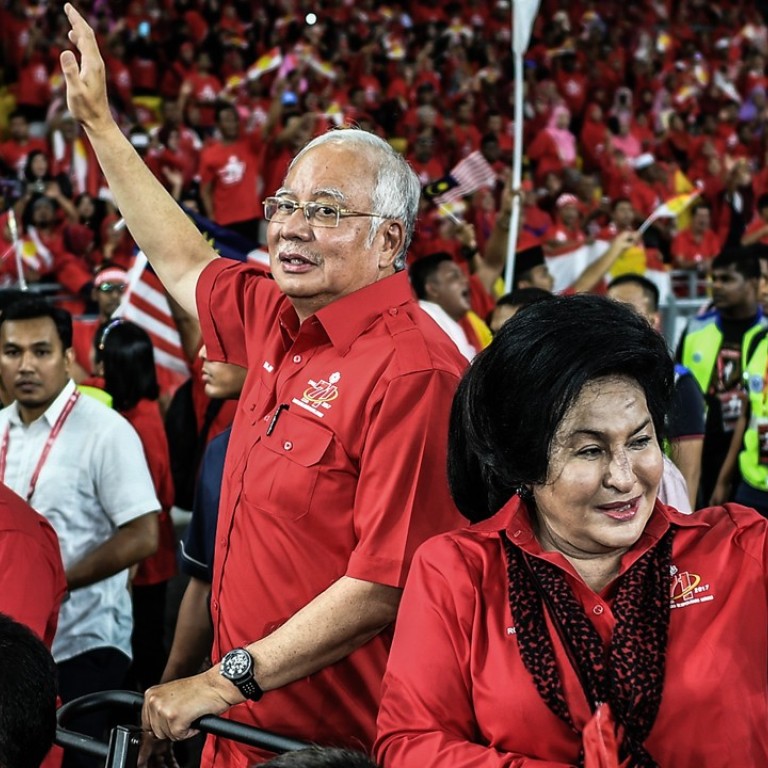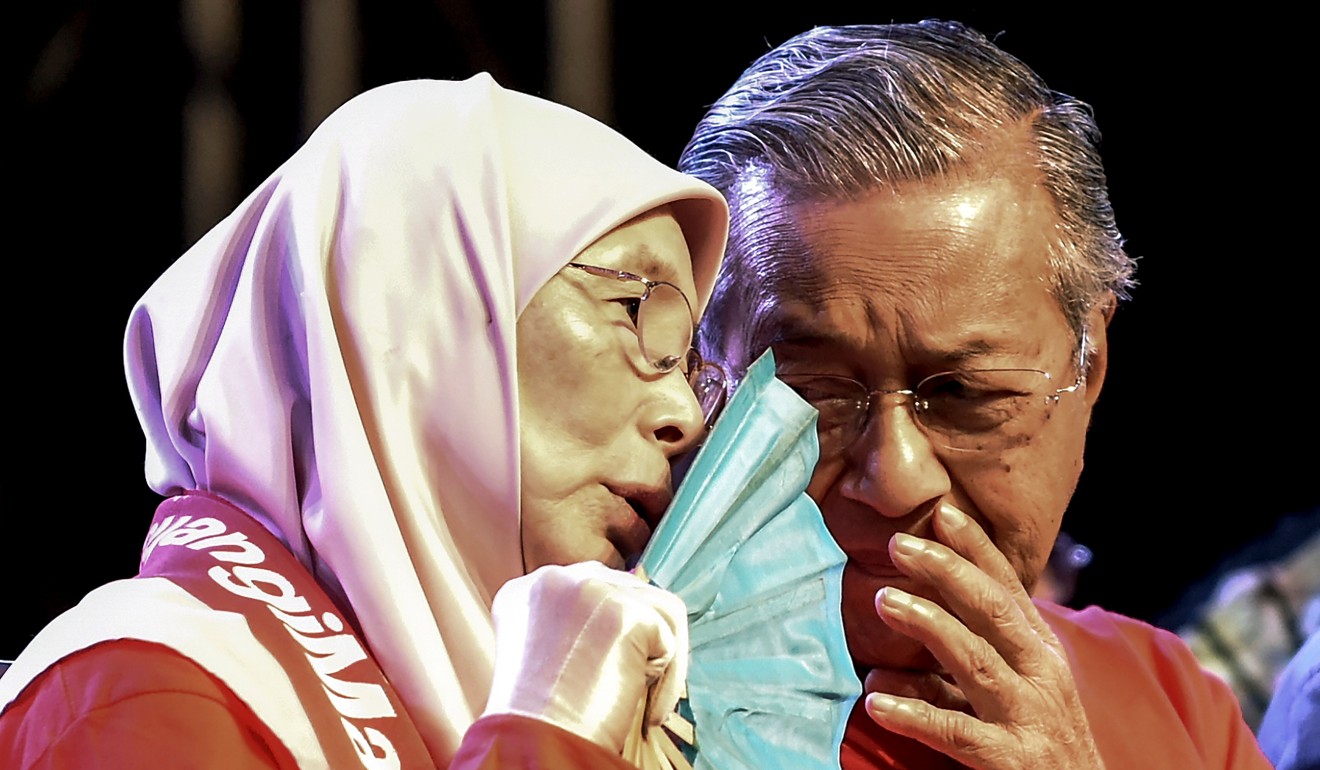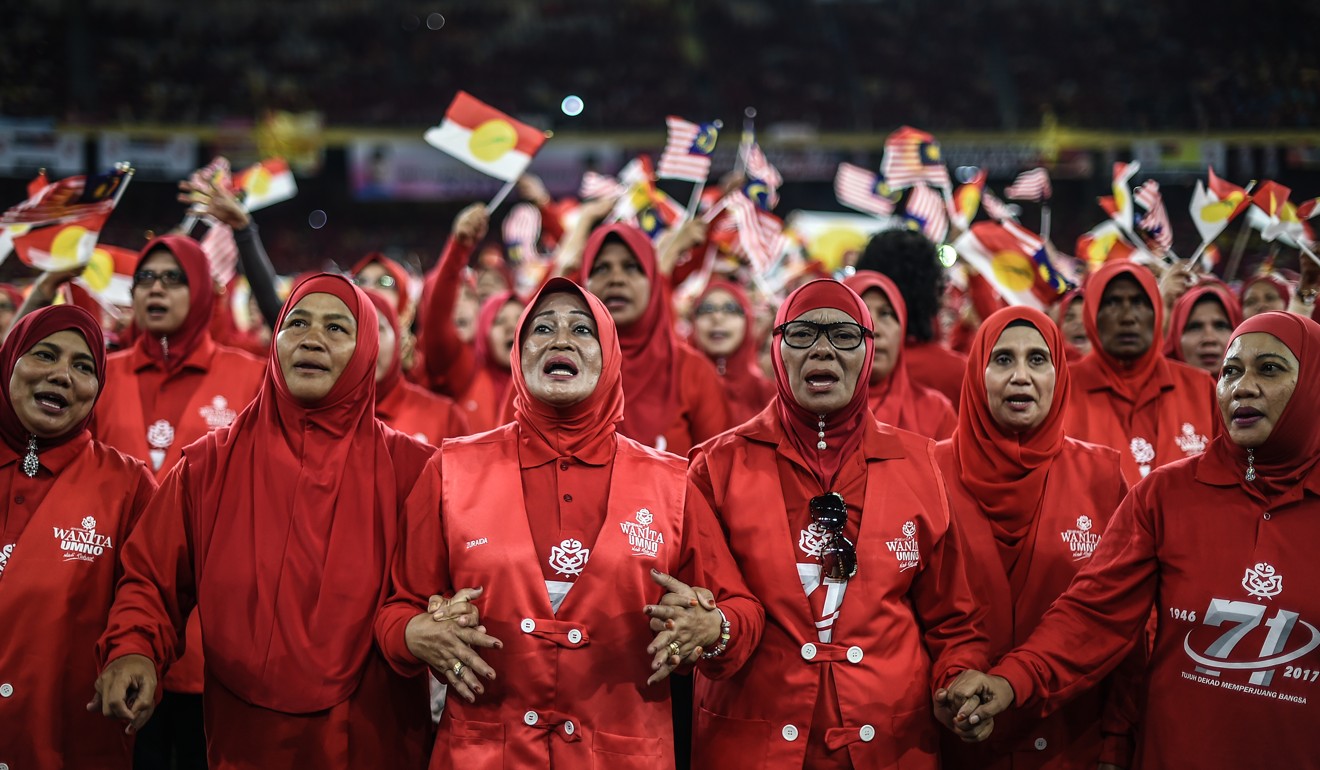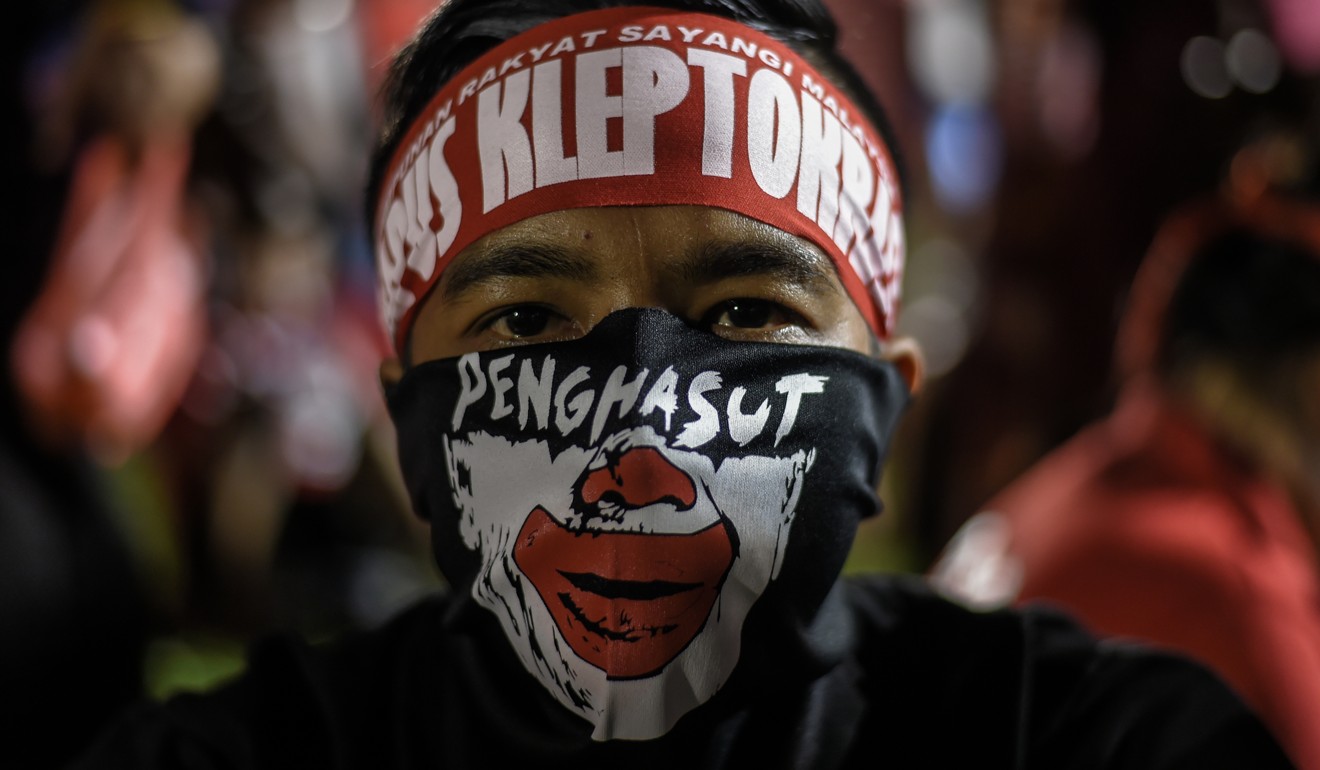
The Malaysian economy is turning. Will Najib’s luck?
Just when it looked like 1MDB allegations would sink the premier, he heads into the ruling party’s final conference with a strengthened hand
Malaysian Prime Minister Najib Razak will not have to dig too deep to rally rank-and-file members of his ruling party when they convene next week for a final annual conference before the watershed general election expected early next year.
Once buffeted by scandal, the premier goes into the latest edition of the United Malay National Organisation (UMNO) general assembly with a strengthened hand thanks to a roaring economy that has upended expectations.
A Bloomberg News survey last week showed the Malaysian economy is likely to grow 5.7 per cent this year and 5.2 per cent next year, in contrast to sub-five per cent growth in 2016.
WATCH: Thousands gather to demand Malaysian prime minister’s resignation
But with Najib appearing to have fully weathered that storm, observers and UMNO insiders say the 64-year-old leader will use the five-day event starting Tuesday to fire the starting gun to the election season, after hemming and hawing about it the whole of this year.
There is a growing consensus that he will call it in March or April – after Lunar New Year and before the start of the Islamic holy month of Ramadan in mid-May. The vote is due by August.

“We are all raring to go for the general election … this is the right opportunity to tell delegates and the electorate to believe in us and return us to power,” said Rahman Hussin, an executive council member of UMNO’s influential youth wing.
The hidden costs of China’s lifeline in the 1MDB scandal
Malaysian politics watcher Mustafa Izzuddin said Najib was likely to “issue a rallying cry for party members and supporters to be ready to activate their ground machinery and go out all guns blazing to win the next election”.

In the past, UMNO leaders have used the party assembly pulpit to burnish their credentials among the majority Malays – at times with racial rhetoric that pitted the community against the minority Chinese and Indians. In power since 1957, UMNO is responsible for enacting policies that grant Malays and other so-called sons of the soil special privileges in the economy and in education.
Is Malaysian support for Rohingya an election ploy by Najib Razak?
But analysts say this time Najib and his lieutenants are likely to put UMNO’s “ethno-nationalism” on the back burner, focusing instead on shoring up their credibility as able custodians of the economy.
Some 5,700 delegates will attend the assembly in Kuala Lumpur.
“UMNO leaders will drive home the point that the government has successfully steered the country through difficult times and that better times lie ahead,” said Saleena Begum Saleem, an associate fellow at Singapore’s S. Rajaratnam School of International Studies.
And the numbers speak for themselves.
The economy grew at its fastest pace in more than three years in the July-September quarter, and the ringgit has risen from a 19-year-low in January to become Asia’s second-best performing currency this year.

A rosy pre-election budget announced in October meanwhile cut income tax for the middle class while forecasting the fiscal deficit to narrow to 2.8 per cent of GDP from the current 3 per cent.
Rahman, the UMNO member, said party leaders will not be left completely off the hook on the economy.
Who’s really selling Malaysia off to China? Najib turns the tables on his critics
“Despite the strong economic performance, the grass roots still have some concerns, for example, on whether the average Joe is benefiting,” he said.
Awang Azman Awang Pawi, a politics professor at the University of Malaya, said rank-and-file UMNO members are also likely to raise concerns about rising food and fuel costs. A total of 826 resolutions have been tabled for discussion at the assembly. None will question Najib’s leadership however.

But continued confidence in the current leader is contingent on his performance at the upcoming polls. His predecessor Abdullah Badawi stepped down soon after the 2008 polls, after the ruling coalition suffered its worst electoral result in decades.
The opposition made further inroads in 2013, winning 51 per cent of the popular vote.
Barisan Nasional retained federal power because the first-past-the-post system saw it win 133 of 222 parliament seats. “If UMNO’s share of seats in parliament decreases in the next election, UMNO will push Najib to step down just like Abdullah Badawi,” Awang Azman said. ■

